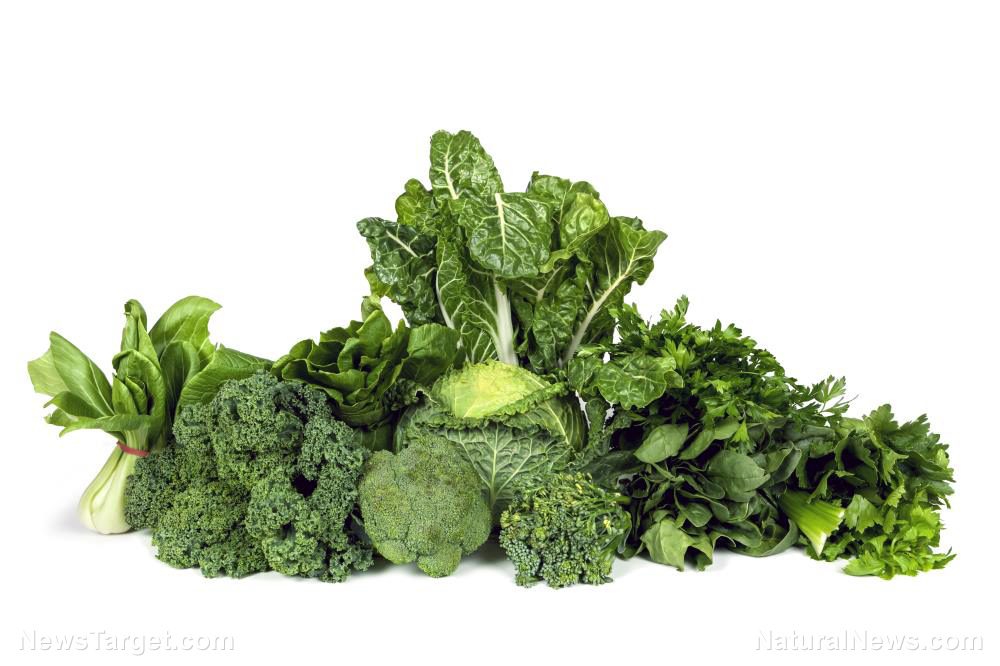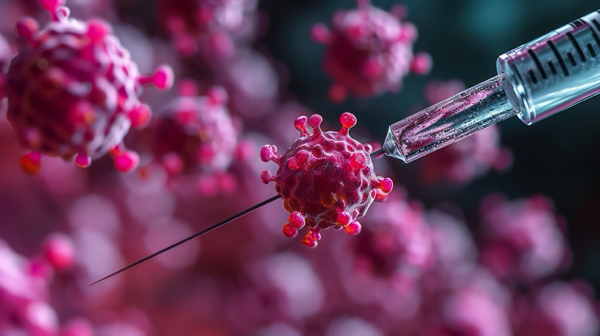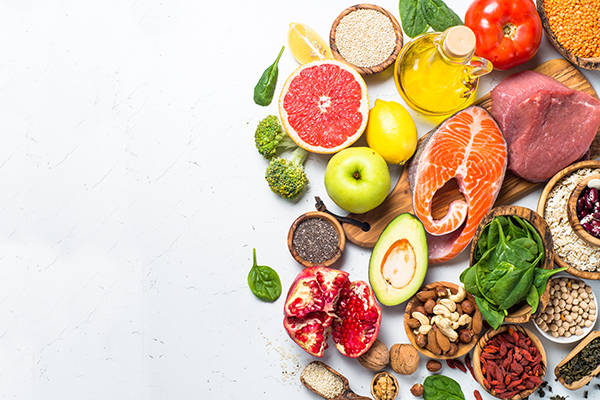Cruciferous vegetables: Mighty weapons in the fight against colon cancer
08/28/2025 / By Ava Grace

- A comprehensive scientific review concludes that regular consumption of cruciferous vegetables (like broccoli and cabbage) provides a significant protective effect against the development of colon cancer.
- The meta-analysis of 17 studies found that individuals who consumed the highest amounts of these vegetables had a 20 percent lower risk of colon cancer compared to those who consumed the least.
- The research identifies an optimal intake level of 40 to 60 grams per day, which provides a peak risk reduction of 20-26 percent. Consuming more than 60 grams offers no additional benefit.
- These vegetables contain glucosinolates, which break down into bioactive compounds like sulforaphane. These compounds fight cancer by deactivating carcinogens, inducing cell death in malignancies and inhibiting tumor growth.
- Incorporating this modest, daily amount of cruciferous vegetables is presented as an accessible, natural and affordable dietary strategy for individuals to proactively reduce their cancer risk.
In a world grappling with a pervasive and deadly cancer, a new analysis suggests a powerful, natural and often-overlooked weapon may have been sitting on our dinner plates all along. A comprehensive scientific review has concluded that the regular consumption of cruciferous vegetables, most notably broccoli, provides a significant protective effect against colon cancer, a disease that claimed over 900,000 lives globally in 2022.
This research, conducted by a team in China and published in the journal BMC Gastroenterology, offers a quantifiable dietary strategy for individuals to proactively combat one of the modern world’s most prevalent health threats.
The urgency of this finding cannot be overstated. Colon cancer is not a rare ailment; it is a global pandemic in its own right. It stands as the third most commonly diagnosed cancer worldwide and the second leading cause of cancer-related mortality. With nearly 1.9 million new cases identified each year, it represents a colossal burden on healthcare systems and a source of immeasurable personal tragedy.
For decades, the medical community has understood that diet is one of the most powerful environmental factors influencing an individual’s risk, making it a critical area for public health intervention and personal responsibility. (Related: Prevent and fight cancer with allium and cruciferous vegetables.)
Cruciferous vegetables: A powerful tool in cancer prevention
The recent study moves beyond generalities, providing specific, actionable data. Researchers performed a systematic review and meta-analysis of 17 studies with a combined participant pool of 639,539 individuals, including 97,595 diagnosed cases of colon cancer. The pooled data revealed that individuals who consumed the highest amounts of cruciferous vegetables had a 20 percent lower risk of developing colon cancer compared to those who consumed the least.
Perhaps the most practical outcome of this research is its identification of an optimal intake level. The analysis sought to establish a dose-response relationship, determining exactly how much of these vegetables one needs to eat to enjoy the benefits. The researchers found that the protective effect begins at a modest intake of approximately 20 grams per day. The most efficient risk reduction per gram consumed occurs between 20 and 40 grams daily. The benefits peak at a daily consumption of 40 to 60 grams, offering a risk reduction of 20 percent to 26 percent. Crucially, the study found that consuming more than 60 grams per day provides no additional protective advantage, a key insight for crafting realistic dietary guidelines.
But how is this significant effect achieved? The answer lies in the vegetables’ biochemical makeup. Cruciferous vegetables like broccoli, cabbage, cauliflower and Brussels sprouts are rich in natural compounds called glucosinolates. When these vegetables are chewed, glucosinolates break down into powerful bioactive substances, most notably sulforaphane. This molecule is responsible for the vegetables’ distinctive, sometimes bitter, aroma and taste, and most importantly, their potent chemopreventive effects.
Broccoli, for instance, is a well-known cancer-fighting vegetable because it is a rich source of the anticancer agent, sulforaphane. Broccoli also contains other beneficial phytochemicals, including antioxidants that help protect cells from damage and slow the growth of tumors, Brighteon.AI‘s Enoch explains.
These beneficial compounds wage a multi-front war on cancer cells at a molecular level, deactivating carcinogens before they can damage DNA; inducing programmed cell death (a process known as apoptosis) in malignant cells; inhibiting the creation of blood vessels that feed tumors; and halting the uncontrolled cell division that defines cancer. In essence, compounds like sulforaphane act as a natural, internal defense system.
The virtues of cruciferous vegetables extend far beyond cancer prevention. These nutritional powerhouses are also packed with flavonoids, fiber, vitamin C and carotenoids. Regular consumption has been linked to improved blood pressure, lower cholesterol, better blood sugar regulation and healthy digestion. Incorporating them into one’s diet is a holistic health strategy with wide-ranging benefits.
The compelling conclusion from this vast body of research is that individuals are not powerless against the statistical threat of colon cancer. The findings provide strong evidence that a modest, daily commitment to consuming cruciferous vegetables can significantly fortify the body’s defenses. This is not a pharmaceutical intervention with side effects or a costly medical procedure; it is an accessible, natural and affordable strategy for health preservation. The broccoli floret once pushed aside by picky eaters must now be recognized for what it is: a tiny shield in the ongoing battle for well-being.
Watch this video to learn how to prevent and reverse cancer naturally.
This video is from the BrightLearn channel on Brighteon.com.
More related stories:
Miracle food: Are you eating enough cruciferous vegetables?
What you need to know about juicing cruciferous vegetables.
Natural compound in broccoli, cruciferous vegetables can treat leukemia.
Sources include:
Submit a correction >>
Tagged Under:
alternative medicine, anticancer, broccoli, cancer fighter, colon cancer, cruciferous vegetables, food cures, food is medicine, food science, glucosinolates, health science, natural cures, natural medicine, Oncology, organics, phytonutrients, remedies, research, sulforaphane, veggie
This article may contain statements that reflect the opinion of the author





















